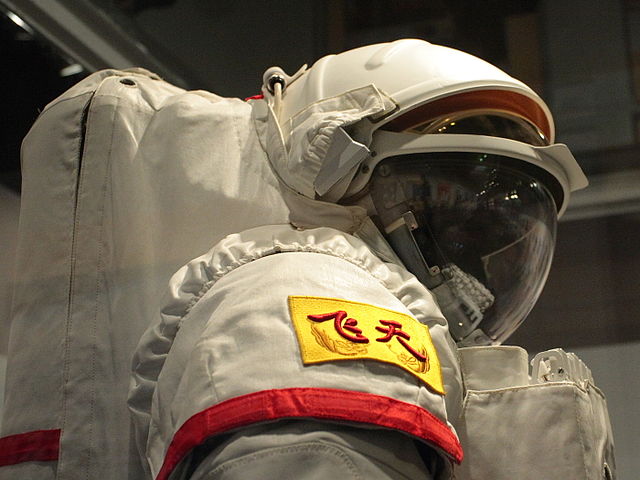
Photo Credit: Johnson Lau
When the Soviet Union launched the Sputnik satellite during the Cold War it was a shocking wake-up call for the U.S., alarming both policy-makers and the public and sparking what came to be known and the Space Race. Of course, the U.S. went on to win that particular race, still having the distinction of being the only country to send it’s citizens to walk on the surface of another world. After the heady days of the Apollo Program the U.S. seemed to settle into a somewhat bureaucratic space program whose substantial achievements were met with public apathy and declining budgets. Few seemed to care when President George W. Bush canceled the shuttle program and President Obama cancelled the successor program that had been planned to take American astronauts back to the Moon and then on to Mars.
Will the news that China has achieved a successful lunar landing prompt a new Sputnik moment for the U.S.? By all accounts, the Chinese lunar mission has been a success. The launch went well, the lunar lander made a stable descent and a soft-landing and the rover has been deployed. The lunar lander and rover and will examine the Moon with multiple cameras, a spectrometer and ground-penetrating radar, logging a science mission that will not only provide valuable data for future missions, but also providing an unparalleled nationalist boost for the newest spacefaring nation.
In his 2011 State of the Union Address, President Obama called for a new Sputnik moment that would unleash American know-how on the challenges of the future:
Half a century ago, when the Soviets beat us into space with the launch of a satellite called Sputnik, we had no idea how we would beat them to the moon. The science wasn’t even there yet. NASA didn’t exist. But after investing in better research and education, we didn’t just surpass the Soviets; we unleashed a wave of innovation that created new industries and millions of new jobs. This is our generation’s Sputnik moment. Two years ago, I said that we needed to reach a level of research and development we haven’t seen since the height of the Space Race. And in a few weeks, I will be sending a budget to Congress that helps us meet that goal. We’ll invest in biomedical research, information technology, and especially clean energy technology -– (applause) — an investment that will strengthen our security, protect our planet, and create countless new jobs for our people.
Unfortunately, Obama’s vision for innovation failed to include the one thing most associated with the historic Sputnik moment – the U.S. manned space program. Under Obama’s leadership the U.S. has transitioned away from manned space exploration and, while we do still have actual astronauts, they must hitch a ride on Russian rockets to reach the International Space Station (largely built with taxpayer funding) rather than being launched into orbit on American shuttles. Lacking the government funded shuttle fleet, the Obama Administration hopes that civilian space taxis will lead a new era of American entrepreneurial spirit in low-earth orbit. Companies like SpaceX, Blue Origin and others are working to make the vision a reality. Until then, we rely on the good will of Russia to ensure our access to space.
In contrast to America’s diminished space goals, China has lofty plans. Building on the Russian and American experience in space, China has planned a methodical manned space program that will see it follow up the lunar rover with an eventual manned mission with a long-term goal of a building a manned lunar outpost. Will the prospect of a Chinese lunar colony galvanize American public and political opinion to once again support an American manned space program? With India on the way to Mars and China landing on the moon, we may well ask (as I did previously here), is the U.S. lost in space?
The history of the Space Race shows that it was at heart a political undertaking and I suspect that it won’t be until another country surpasses U.S. achievements in space that the U.S. will face another true Sputnik moment.